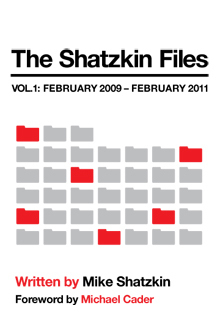
|
Scooped by Robin Good |
"Historically, there have been only two ways of making money in travel - huge volumes of content (TripAdvisor, Google) or control of inventory (Expedia, Airbnb, Viator).
..., a ‘third way’ is emerging. “You’d see start-ups like Utrip, Citybot, Touristeye and us battling it out with stalwarts like Yahoo Travel and Lonely Planet to be the first to solve this pain,..."
...
...customer interviews revealed that creating an itinerary is a ‘meta’ level problem that most travellers struggle with.
By [curating by hand] and combining the data sources we were able to generate a new type of knowledge (ie: what’s the best trip to take when I’m travelling with kids to south of France?) that hadn’t been possible before.
This is a game-changer. It allows even start-ups to create proprietary knowledge that is not beholden to the industry giants."
Here's what Mygola’s co-founder Anshuman Bapna says: "The most intriguing battle to me is between curation and choice.
The trajectory for the past decade had been that more is better - more flight options, more hotels to choose from.
However, there’s a competing narrative building up now where editorial judgement reduces the choices to a much more manageable few - sort by ‘agony’ filter (Hipmunk), stay at these handchosen places (HotelTonight).
I find this very interesting as an entrepreneur because neither the existing industry leaders (Priceline) nor the pretenders to the throne (Google) excel at this kind of stuff.
This requires human judgement (not collaborative filtering, which is just a proxy for it) at scale."
Interesting. Right on the mark. 8/10
Full interview: http://www.eyefortravel.com/mobile-and-technology/less-more-online-travel-needs-curated-itineraries-based-human-judgement
Check the Mygola service here: mygola.com
(Image credit: Compass and shells - Shutterstock)



 Your new post is loading...
Your new post is loading...








I haven't read this article but I knew right away, when I saw the title, that it was a valuable subject. I think that if more business people knew who much curation helps their 'don't have time' problem, they'd really be enthusiastic about it.
There's a tendancy, I believe, among business owners to think that people who read their blog, or website (or any other content) expect it to be Pulitzer Prize quality. I don't think that's true at all. Nor do customers expect a LOT of content. They just want to know what the business owner thinks and (in many cases) what they're 'up to'.
Curation makes it so easy for business owners to give them that info.
Add curation in with mobile video and travel blogging and I think you've got a winning combination.